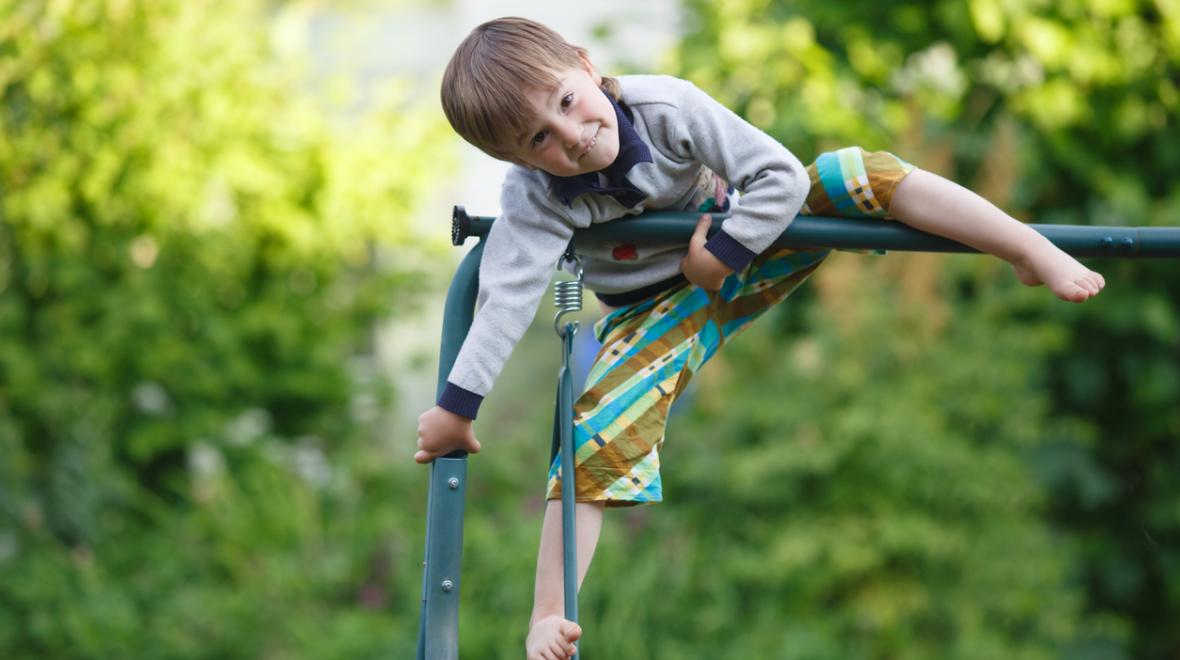
When her husband was offered a position in a small town outside of Berlin, Sara Zaske, new mom and author of "Achtung Baby: An American Mom on the German Art of Raising Self-Reliant Children," was hesitant to leave her life in the Pacific Northwest. Ultimately, it was the opportunity to be a stay-at-home mom to their young daughter and a chance to find more time for writing that convinced her to move.
Zaske, like many Americans, held some misconceptions about Germans. Although she expected them prioritize control and to be more authoritarian than American parents as a whole, she was amazed to find this view challenged shortly after her arrival.
Instead, she found that German parents place a high priority on self-reliance in children. They accomplish this by letting their kids have the space to play, explore and figure their world out on their own.
“They treat their children as capable beings worthy of trust,” she writes in the book's introduction. “And most important, they respect their children’ rights: to move freely, think for themselves, and ultimately as they grow older, to run their own lives.”
Throughout the book, Zaske outlines the differences between the way Germans and Americans approach specific parenting challenges. Each of these examples seems to point back to one common thread — German children have so much more independence that American parents look like hyper-anxious, helicopter parents in comparison.
German children have so much more independence that American parents look like hyper-anxious, helicopter parents in comparison.
For example, early in the book she addresses differences between how parents handle newborn sleep. In Germany, their commitment to teaching independence extends into infant sleep practices and only 20 percent of parents stay with their child until they’ve fallen asleep. Young babies are taught from an early age to be comfortable going to sleep along.
This is just one example. According to Zaske, German parents allow their young children to walk themselves to school alone, children are given much more freedom for play outdoors with little or no parental supervision, and many schools embrace the philosophy that children can guide their own education.
Reading the book, I couldn’t help but notice another common thread — the German parents Zaske describes seem significantly more chill than the many under-slept, strung-out moms I know here in the states. For instance, sending your children to kita, which is a lot like preschool or daycare, was expected and even paid for by the government.
The German parents Zaske describes seem significantly more chill than the many under-slept, strung-out moms I know here in the states.
Here in the states, there is a lot of guilt about daycare and most stay-at-home moms keep their kids home with them all day until they’re old enough for school. When I take my kids to the park, very few parents sit on a bench; instead, they follow their children closely, monitoring their every step and intervening when things seem the least bit risky. Instead of pulling their hair out coming up with ways to entertain their kids when the weather is bad like my friends and I are right now, German parents typically bundle their kids up and send them outside, embracing the philosophy of “No bad weather.”
Of course, there's no such thing as a perfect parenting style. But as a mom of young kids, I found the way Zaske describes the German approach to parenting attractive and I’ve found myself mulling over how I could encourage more self-reliance in my three small children. Overall, she does a great job presenting the differences she observed and detailing her own experiences as a mother without pushing a prescriptive change on the readers of her book.
"Achtung Baby" was released on Jan. 2 and is available from most major retailers. To learn more, you can hear Zaske speak at a Town Hall in Seattle on Jan. 22. at 7:30 p.m.











